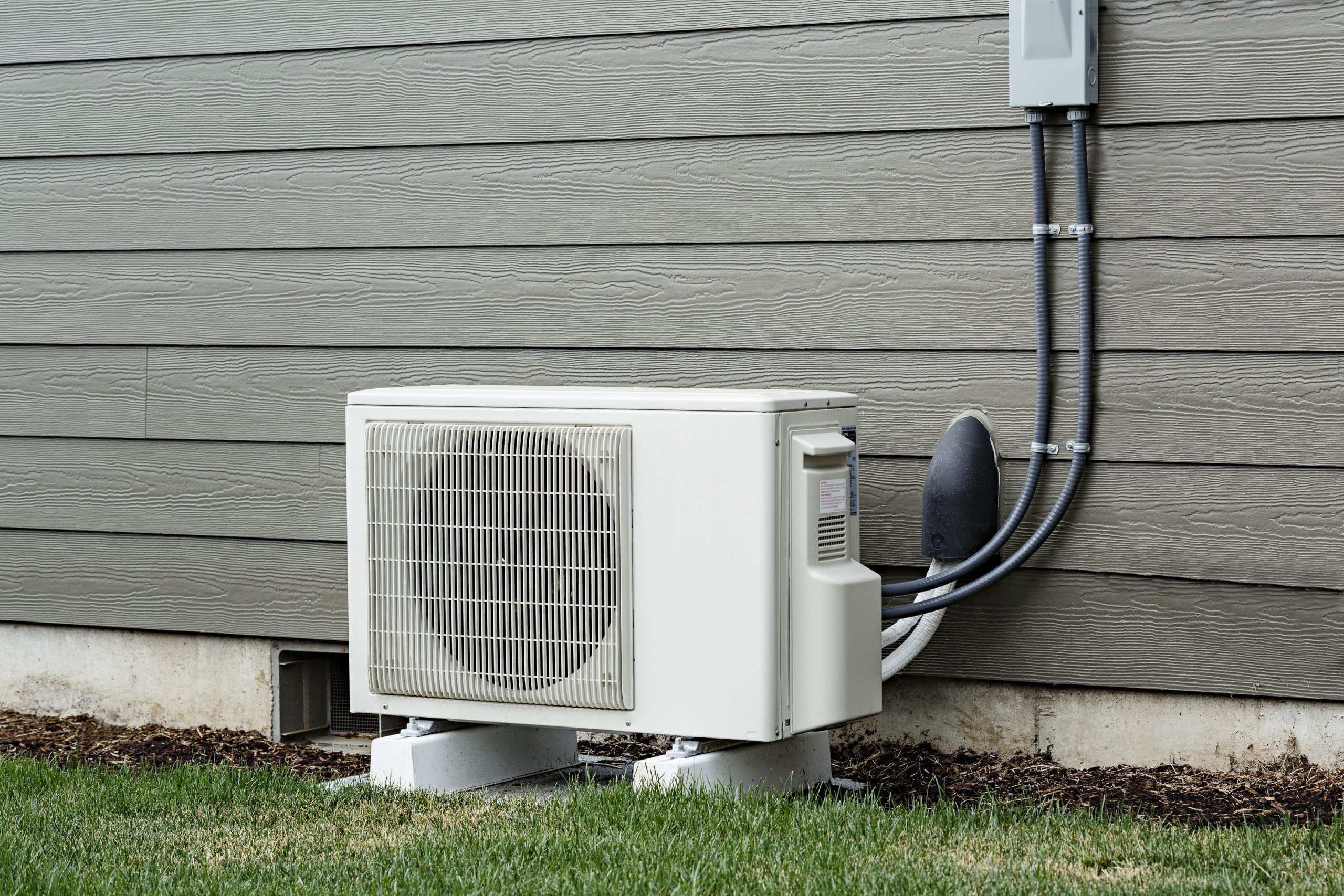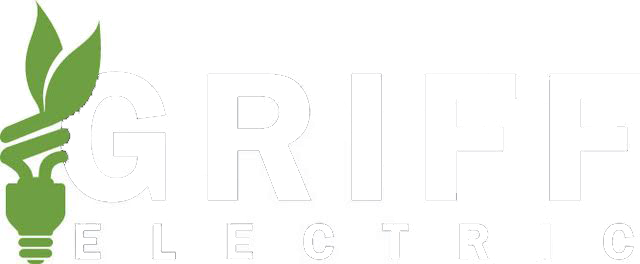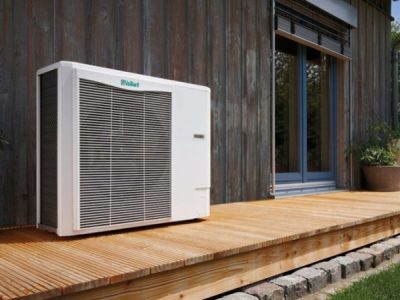
It’s not just hot air; heat pumps may be everywhere in a few years, so what are they? And how do they make homes more efficient?
What Is a Heat Pump?
At its most basic, electric heat pumps work by transferring thermal energy from the air, water, or ground into your home. Another term for a heat pump is a heat exchanger, which offers a clue on how this equipment works. Essentially, pressurized refrigerant lines absorb heat and move it between one area and another. In winter, heat pumps take warm air from outside (yes, even if it’s very cold there’s still some thermal energy that can be gleaned from winter air) and pumps it into your home. In summer, it’s reversed. Warm air in your home is pumped outside, just like how an air conditioner cools a room.
How Efficient Are They?
Unlike an air conditioner, heat pumps can both heat and cool a room. We won’t go into the thermodynamics of the process, but this video from This Old House offers an excellent explanation. In southern New England and throughout much of the country, an air-source heat pump (ASHP) is the most common in residential applications due to its relatively low operating cost, ease of installation, flexible zone temperature control, and ability to be retrofitted to older homes. ASHPs biggest benefit, of course, is their energy efficiency. They can reduce the energy you use to heat or cool your home by up to 60%. (Source)
It’s this efficiency that has given the humble heat pump more attention lately, not just in environmental circles but on the geopolitical stage: heat pumps are having a moment right now because their use helps cut down on the need for natural gas — something that’s of primary concern for Europe as Russia’s invasion of Ukraine complicated the continent’s dependence on Russian gas (more on that here). As a result, more people than ever are thinking of energy efficiency, stability, and independence, and they’re turning to electric heat pumps to achieve that future.
Types of Air-Source Heat Pump (ASHPs)
Air-source heat pumps are available in two configurations: ducted or ductless. If you’re in an older home with no ductwork, then a ductless system is for you. Ductless systems are also known as “mini-splits” because they’re smaller than a traditional air conditioning system and they’re “split” into two parts: the outside compressor and an indoor air handler.
Ductless Mini-Splits
Ductless mini-splits are a popular choice in regions like ours because their installation is simple. A three-inch hole is all you need to run the refrigerant line from the outside compressor to the indoor head. One compressor can support multiple heads allowing for multi-zone comfort. This allows historical homes, for example, to enjoy the next generation of efficient heating and cooling without compromising the aesthetic value of the home. A little clever landscaping can even hide the diminutive compressor.
Ducted Mini-Splits
You can choose either ductless or ducted mini-splits if your home has central air because that means it has existing ductwork. Adding a heat pump can supplement central air by eliminating a hot or cold zone that the larger system can’t quite reach. This also lessens the strain and energy demand on your system.
But if energy efficiency is what you’re after, you have the option of eliminating central air altogether; something to think about if your central air system is approaching the end of its service life. It’s worth noting, however, that ducted mini-splits may be less efficient as air leaks can occur with ductwork.
Whatever you choose — ducted or ductless — mini-split heat pumps are an increasingly attractive choice for homeowners everywhere.


